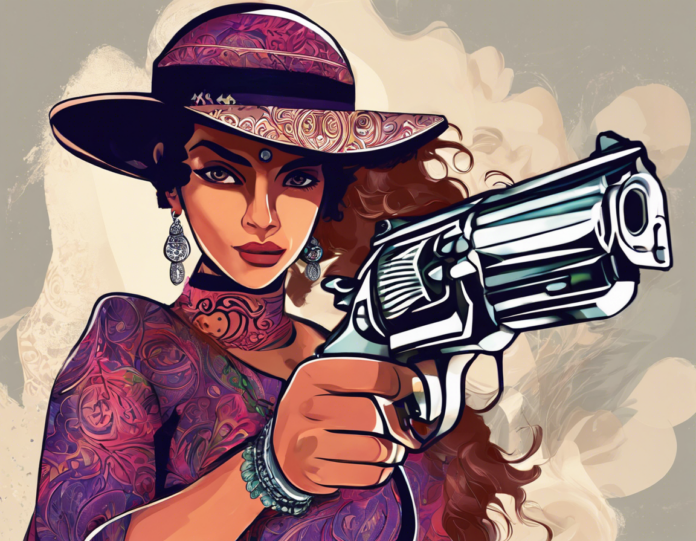Introduction:
Anuradha Choudhary, popularly known as Revolver Rani, is a prominent figure in Indian history who rose to infamy in the 1980s for her ruthless actions as a bandit queen. Her life story is a blend of mystery, rebellion, and violence, leaving a lasting impact on the cultural narrative of the country. Let’s delve deeper into the intriguing tale of the notorious Revolver Rani Anuradha Choudhary.
Early Life and Background:
Anuradha Choudhary was born in a small village in the heart of India to a humble family. Growing up in poverty and witnessing the injustices faced by her community, she developed a rebellious spirit from a young age. As she came of age, Choudhary experienced firsthand the oppression and corruption prevalent in society, which fueled her resolve to stand up against the system.
Transformation into Revolver Rani:
The turning point in Choudhary’s life came when she was forced into a corner by local authorities who falsely accused her family of a crime they did not commit. Faced with no other option, she took up arms and launched a fierce retaliation against those who wronged her. This marked the beginning of her transformation into the infamous Revolver Rani, a fearless outlaw feared by many and respected by some.
Reign of Terror:
Revolver Rani Anuradha Choudhary quickly gained notoriety for her daring escapades and Robin Hood-esque persona. She targeted corrupt officials, greedy landlords, and anyone who exploited the poor and vulnerable. Choudhary’s notoriety grew as she continued to evade capture and operate with impunity, striking fear into the hearts of her enemies.
Capture and Legacy:
Despite her wily tactics and cunning maneuvers, Revolver Rani’s luck eventually ran out, and she was apprehended after a dramatic encounter with law enforcement. Her trial and subsequent imprisonment only added to her mystique, turning her into a folk hero for some and a criminal mastermind for others. Anuradha Choudhary’s legacy continues to spark debates about justice, morality, and the blurred lines between right and wrong.
Lessons from Revolver Rani:
The tale of Revolver Rani Anuradha Choudhary serves as a cautionary reminder of the consequences of unchecked power and the complexities of justice in a flawed society. Her story challenges us to reflect on the grievances that drive individuals to extreme measures and the impact of systemic inequality on the fabric of our communities. Ultimately, her legacy remains a potent symbol of resistance against oppression and a testament to the enduring spirit of defiance.
FAQs (Frequently Asked Questions):
- Was Revolver Rani a real person?
-
Yes, Revolver Rani Anuradha Choudhary was a real historical figure who gained notoriety as a bandit queen in India.
-
What were Revolver Rani’s motives for her actions?
-
Revolver Rani was driven by a desire to seek justice for the marginalized and oppressed, often targeting those in power who exploited the vulnerable.
-
How did Revolver Rani acquire her nickname?
-
Revolver Rani earned her moniker due to her proficiency with firearms and her fearless approach to confronting her enemies.
-
What was the ultimate fate of Revolver Rani Anuradha Choudhary?
-
Revolver Rani was eventually captured by the authorities and faced trial for her crimes, leading to her imprisonment.
-
How did Revolver Rani impact Indian society and culture?
- Revolver Rani’s story sparked debates about justice, morality, and the disenfranchisement of the underprivileged, leaving a lasting legacy on the cultural narrative of India.
In conclusion, the tale of Revolver Rani Anuradha Choudhary stands as a testament to the complexities of human nature and the enduring struggle for justice in a world rife with inequality and oppression. Her story remains a potent symbol of resistance and defiance, resonating with audiences who continue to grapple with similar themes in contemporary society.












